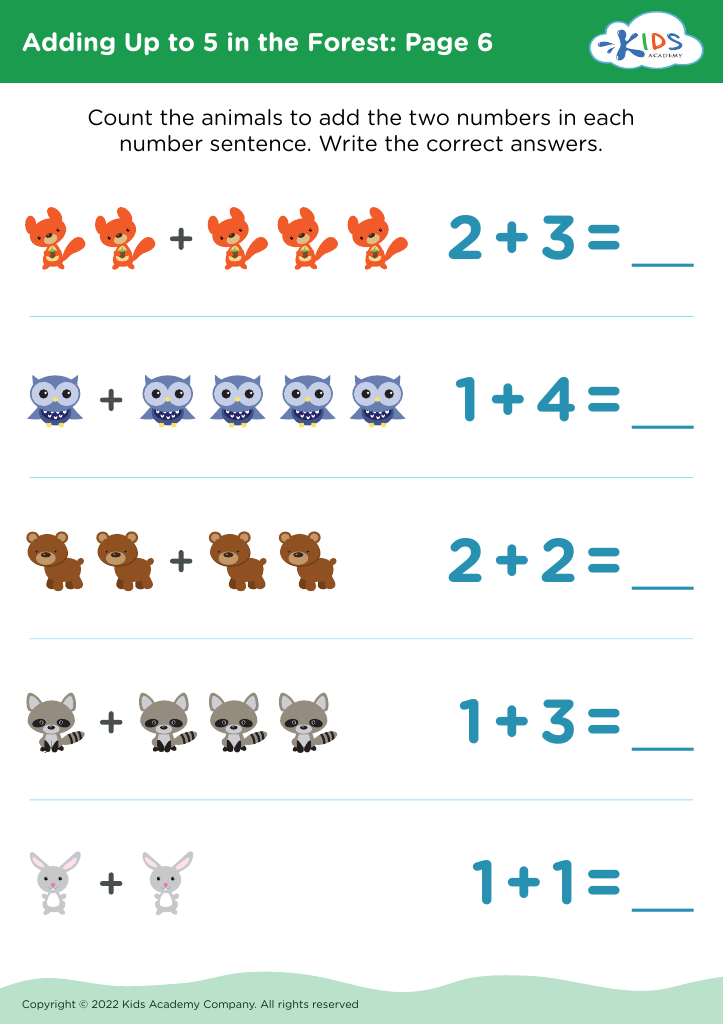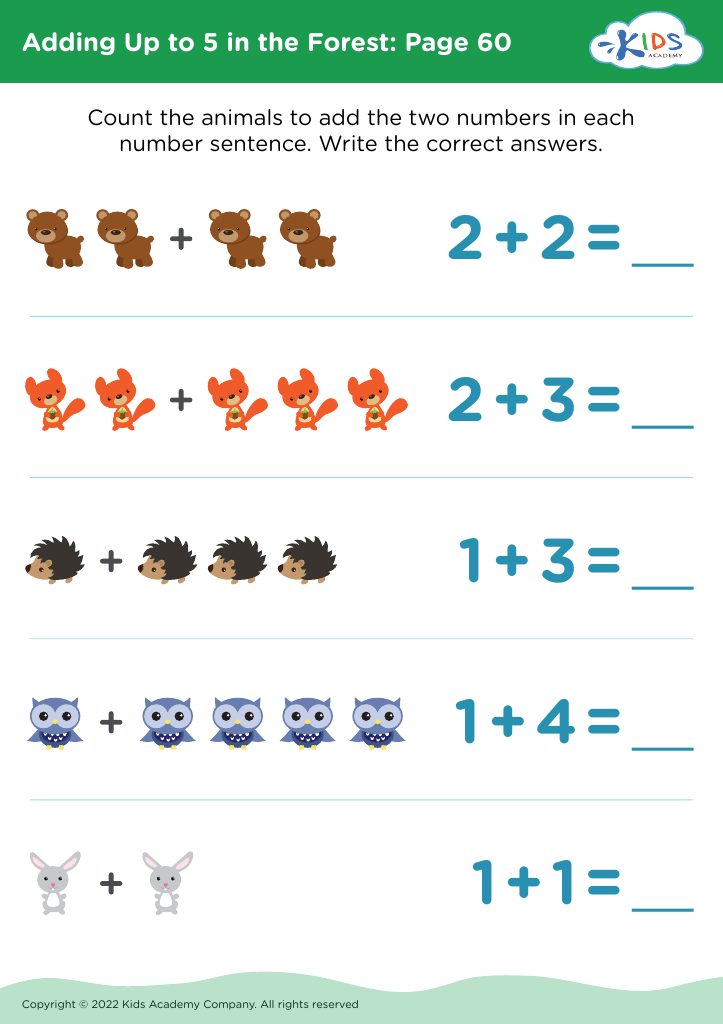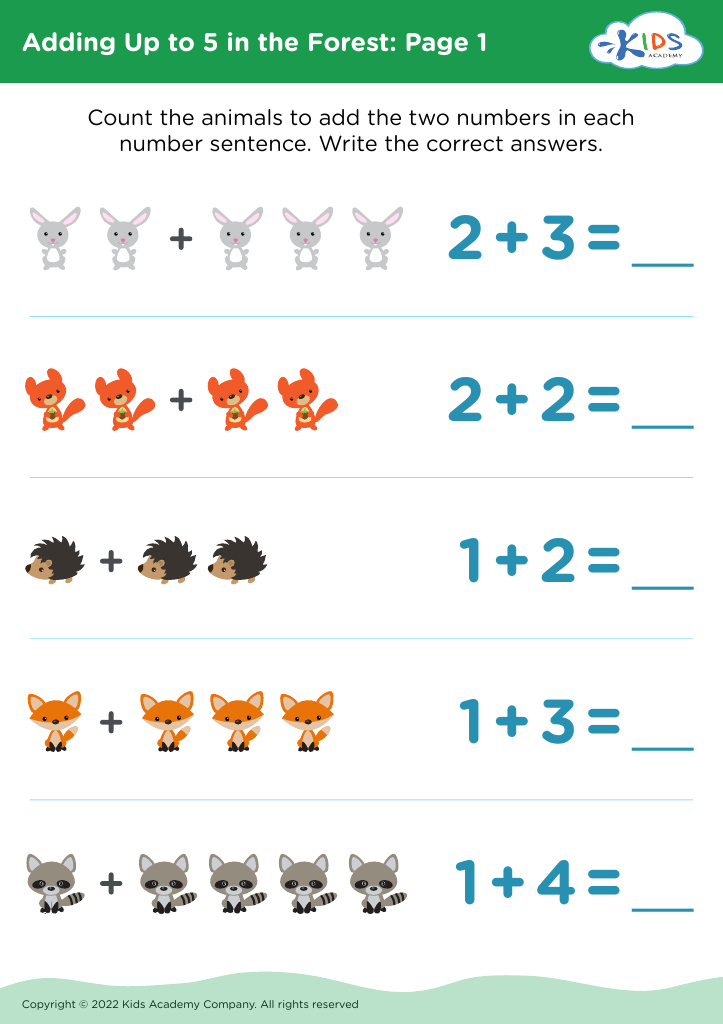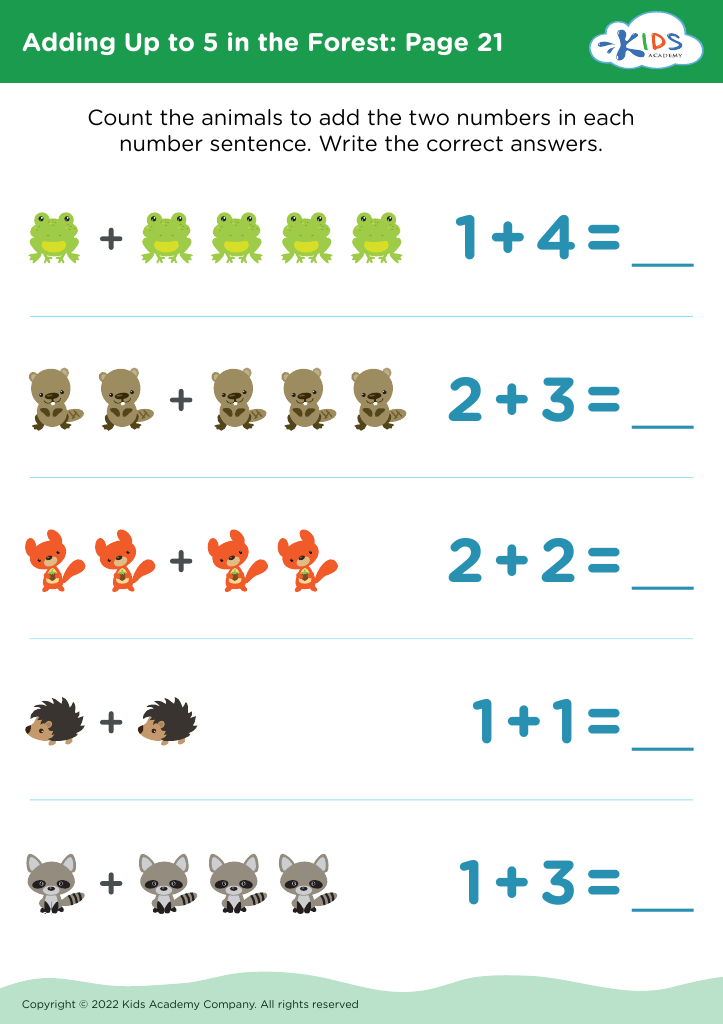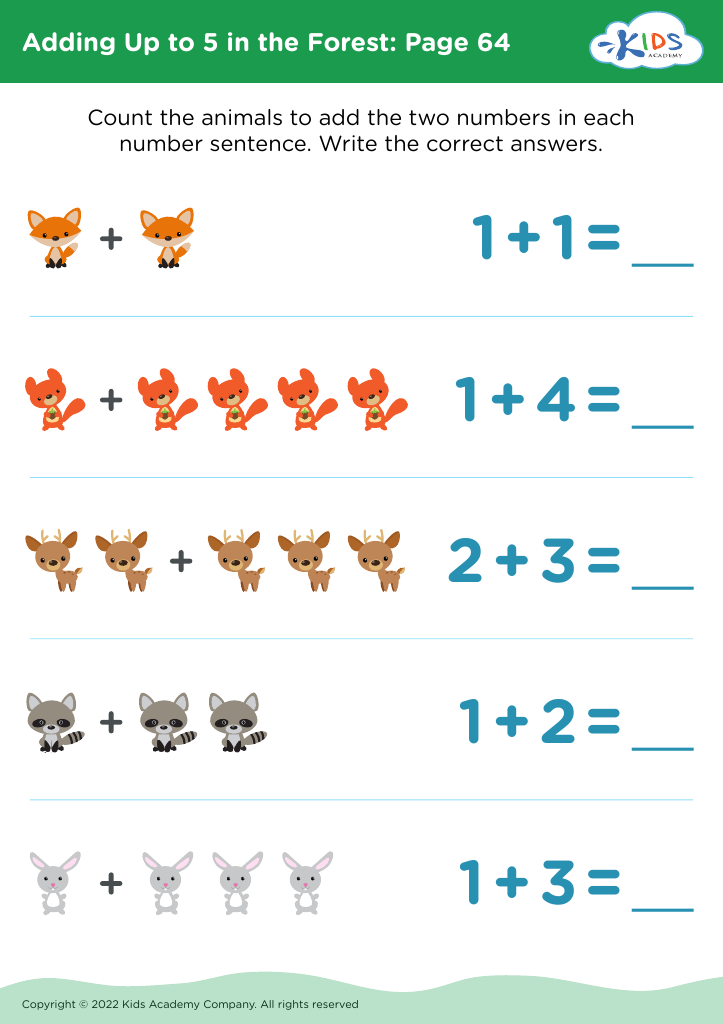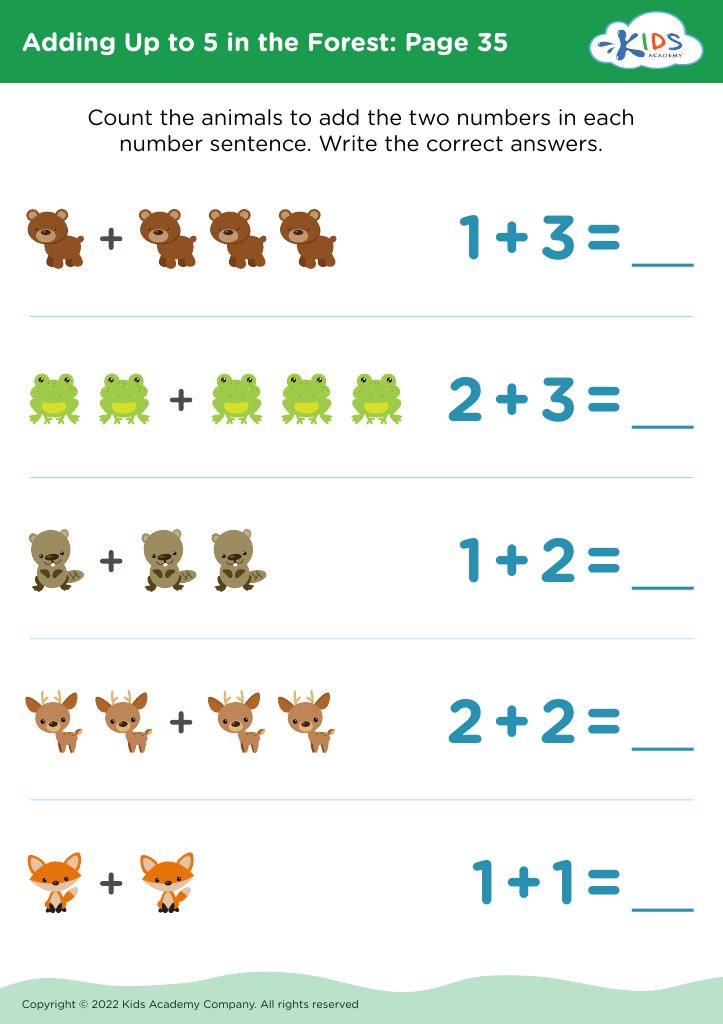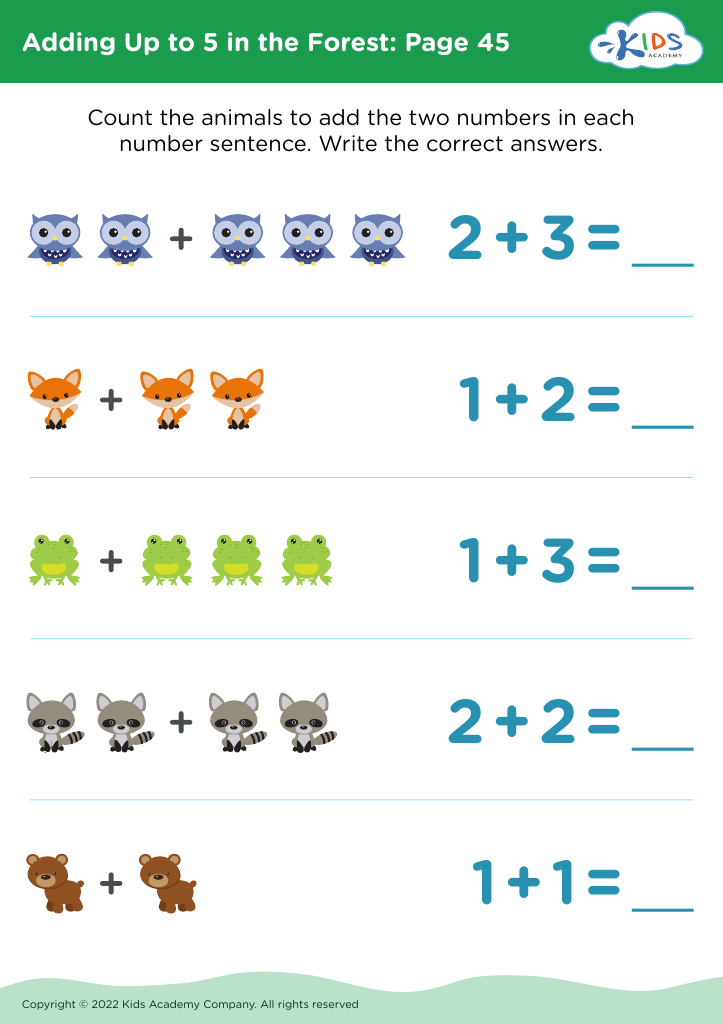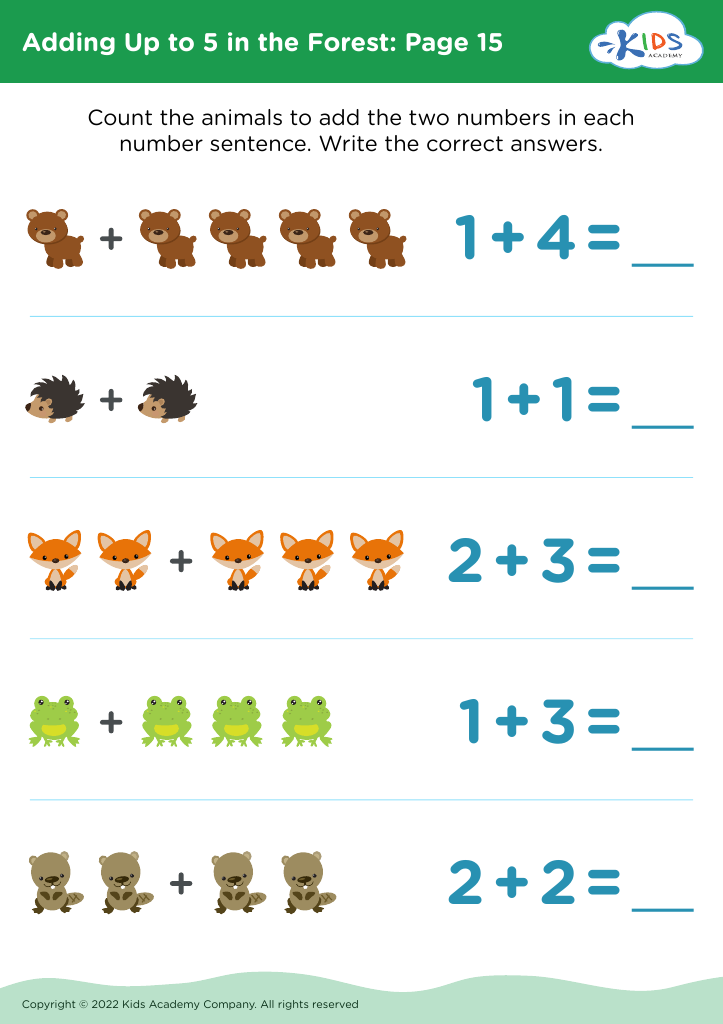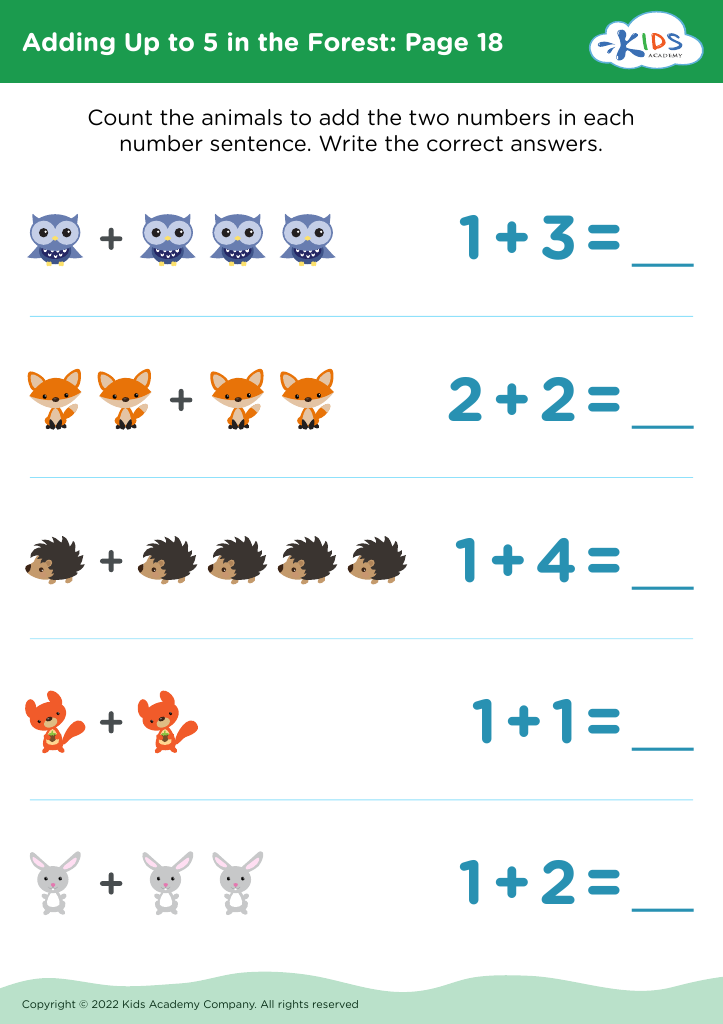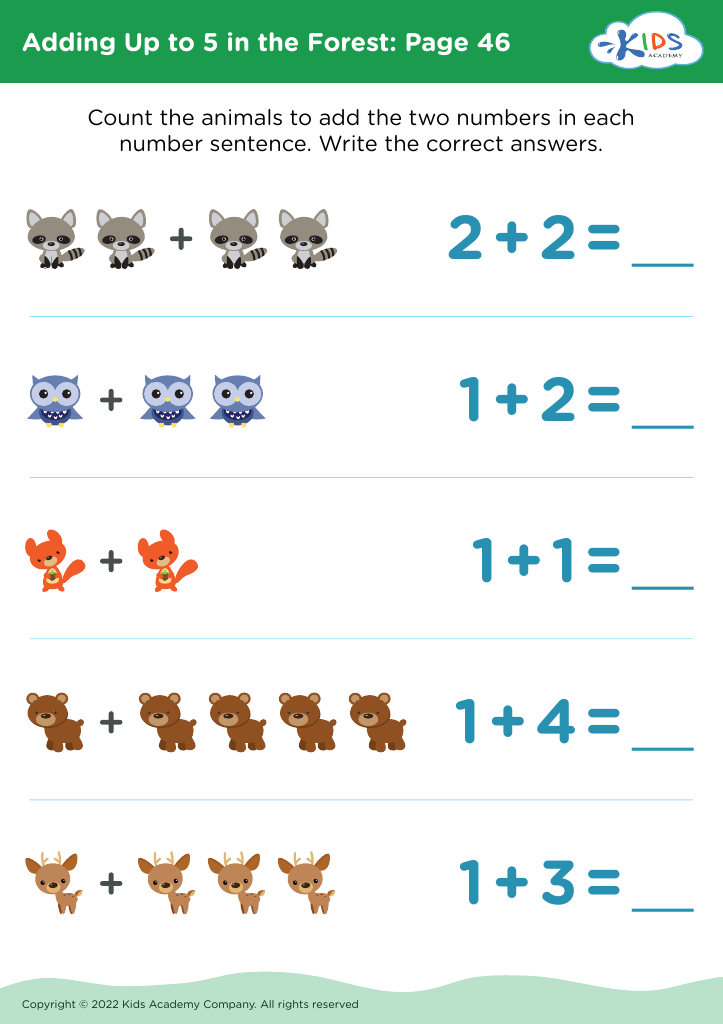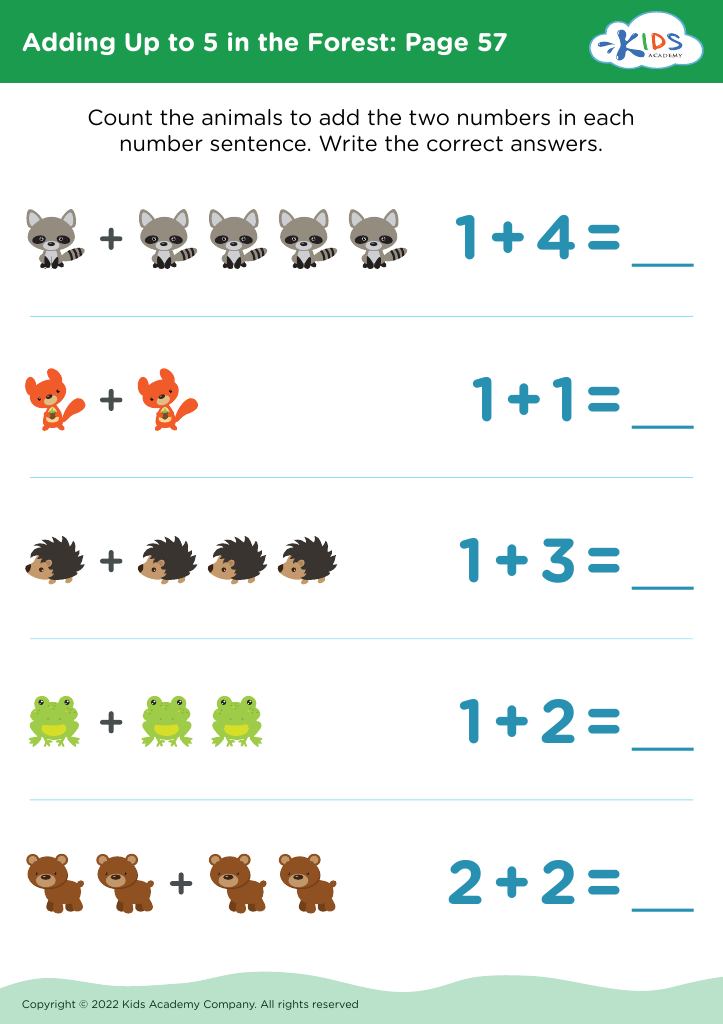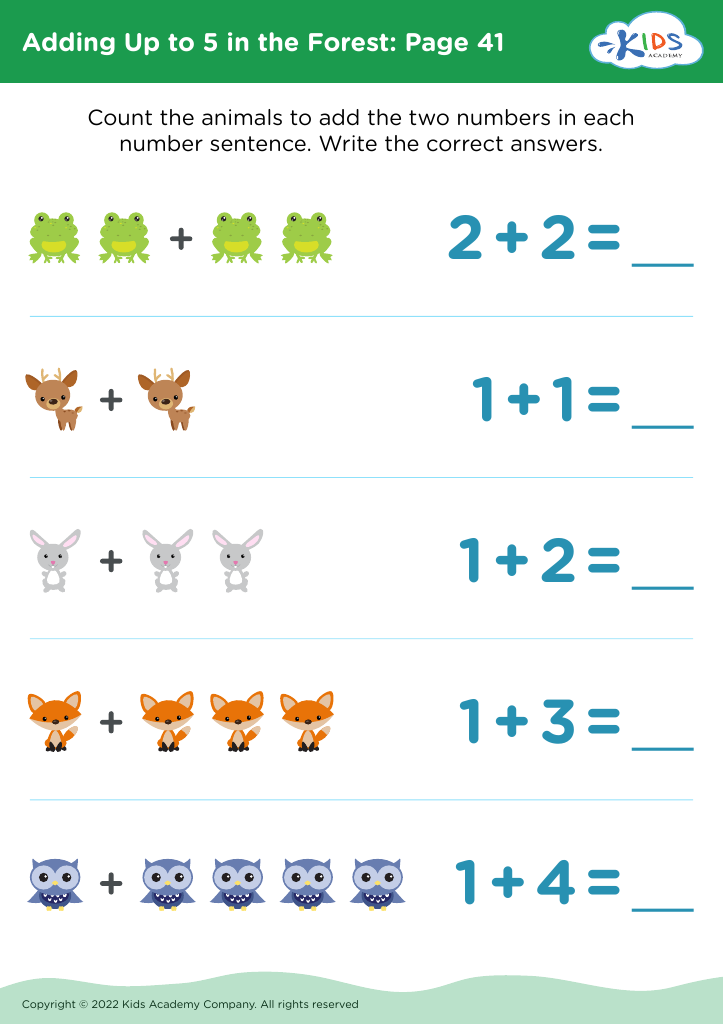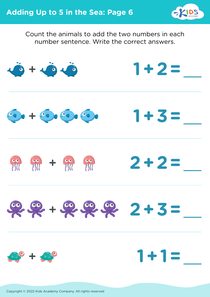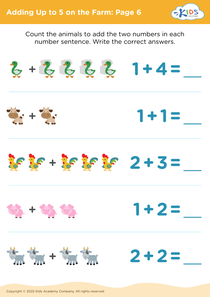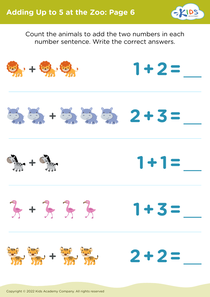Visual Learning Adding in the Forest Worksheets for Ages 4-5
12 filtered results
-
From - To
Explore the exciting realm of visual learning with our "Adding in the Forest Worksheets" designed for children aged 4-5. These engaging worksheets utilize vibrant forest themes to make math fun and relatable. By incorporating visual aids, young learners can strengthen their addition skills through colorful illustrations and interactive exercises. Each worksheet promotes problem-solving and critical thinking as children connect with nature while mastering basic math concepts. Perfect for classrooms or home learning, our resources foster creativity and a love for learning. Elevate your child’s educational journey with these dynamic, skill-building activities that captivate their imagination while developing essential foundational skills!
Visual learning is a powerful tool for young children, especially in a natural setting like a forest. For ages 4-5, children are naturally curious and learn best through engaging, sensory experiences. The visual aspect of learning allows them to see and interact with their environment, fostering a deeper understanding of the world around them.
When engaged in forest activities, children can explore colors, shapes, and patterns found in leaves, flowers, and tree bark. This stimulates their observational skills and enhances their cognitive development. Using visual aids, like pictures or real-life objects, helps to reinforce concepts such as size, quantity, and categorization.
Moreover, outdoor learning nurtures creativity and imagination. It encourages children to draw, paint, or create stories about their surroundings, thus enhancing their expressive skills. The forest setting also promotes physical health and social interaction, as children can collaborate with peers, sharing their discoveries and ideas.
For parents and teachers, supporting visual learning in such immersive environments can lead to more engaged learners, fostering a lifelong love of nature and exploration. Ultimately, creating opportunities for visual learning in the forest supports holistic growth—intellectually, socially, and emotionally—thus benefiting children as they develop foundational skills for future learning.
